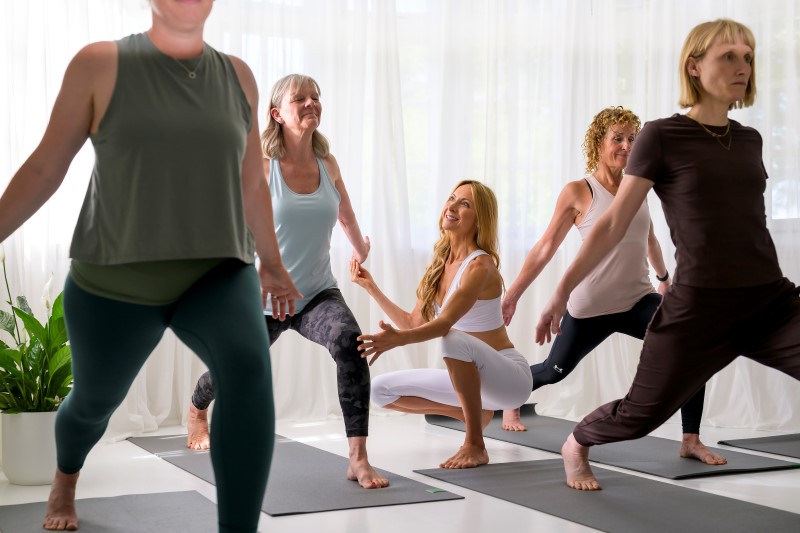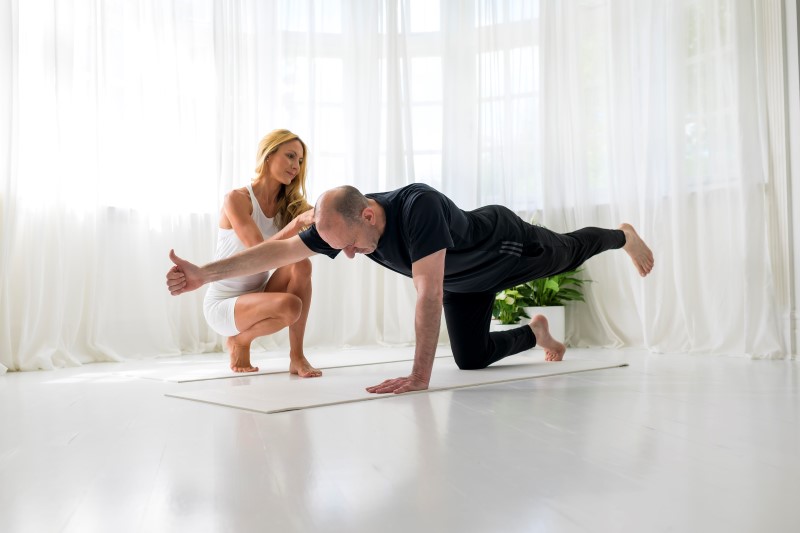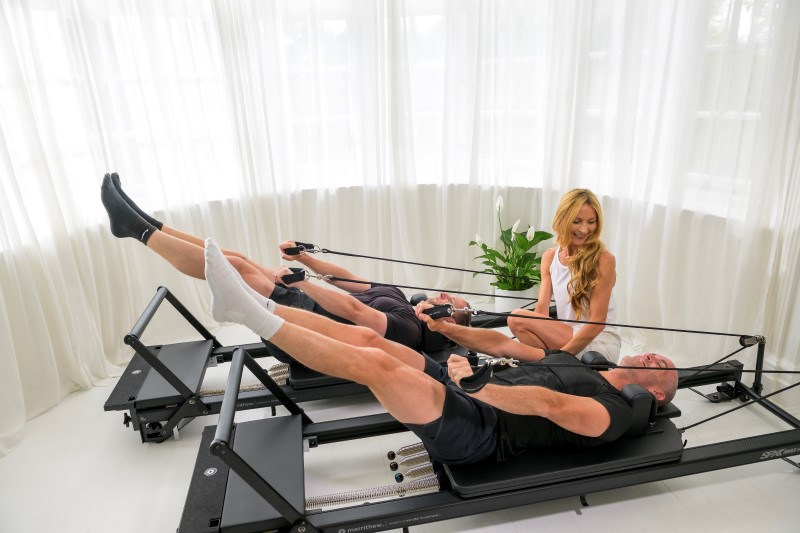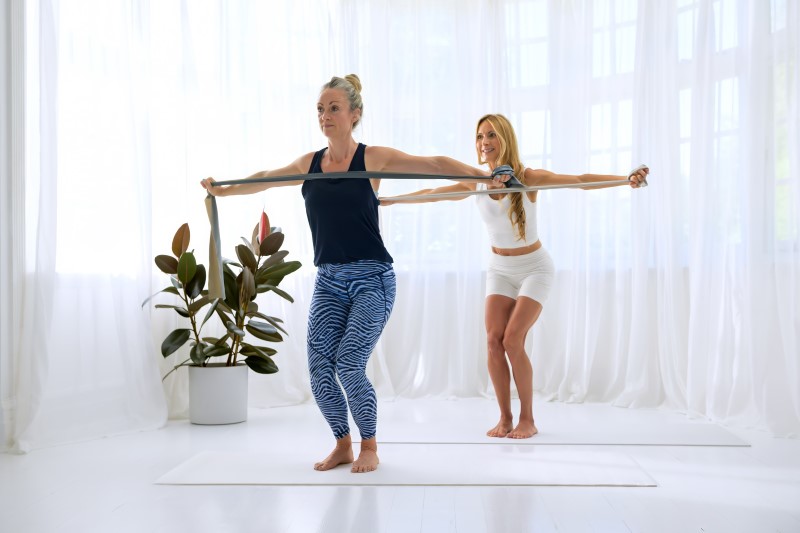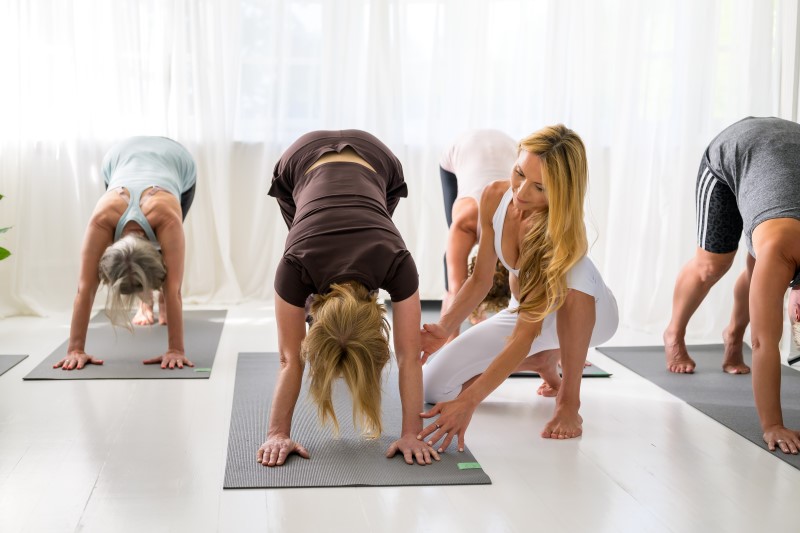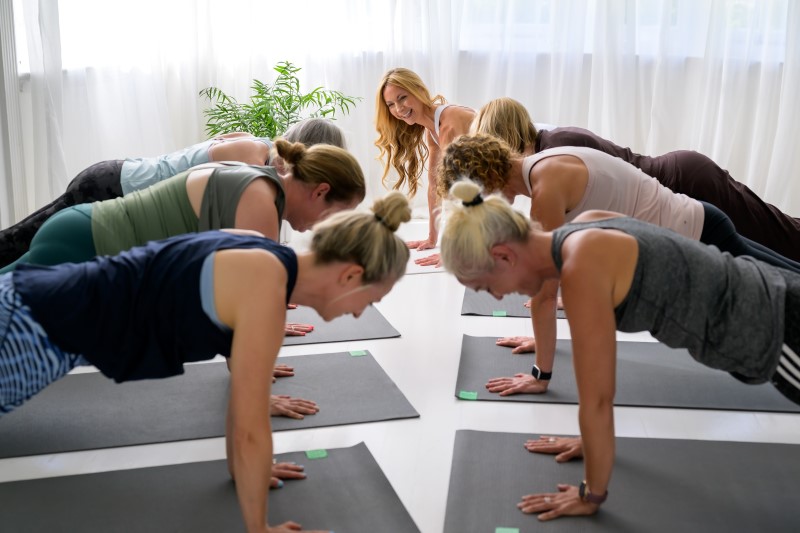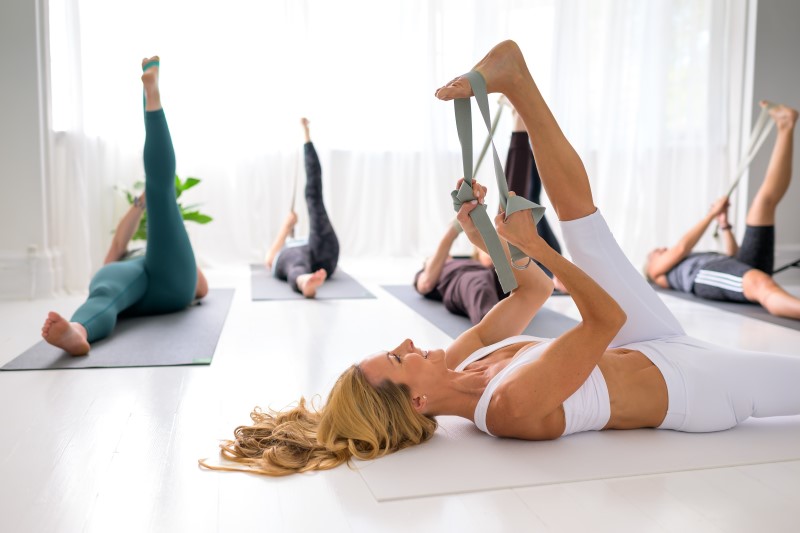
The miracle of pregnancy!
If you are reading this and are pregnant, congratulations! Pregnancy is one of the most special times of a woman’s life and the experience is very much unique to each woman, not one pregnancy is ever exactly the same. Here, I share some information and tips that I hope you find helpful.
The First Trimester
The First Step of the Journey…
Often the hardest trimester of them all. For many, including myself, the hardest part is keeping your pregnancy a secret when all you want to do is tell the world, ”I’m pregnant!” … and also offer an explanation as to why you are not yourself or feeling unwell, not drinking or refraining from things that you would usually do.
Many of my clients do tell me when they have just found out they are pregnant to get advice on the do’s and don’ts exercise wise (see later).
The other difficulty the first trimester brings is morning sickness! Unless you are one of the lucky women that are fortunate enough not to suffer with it.
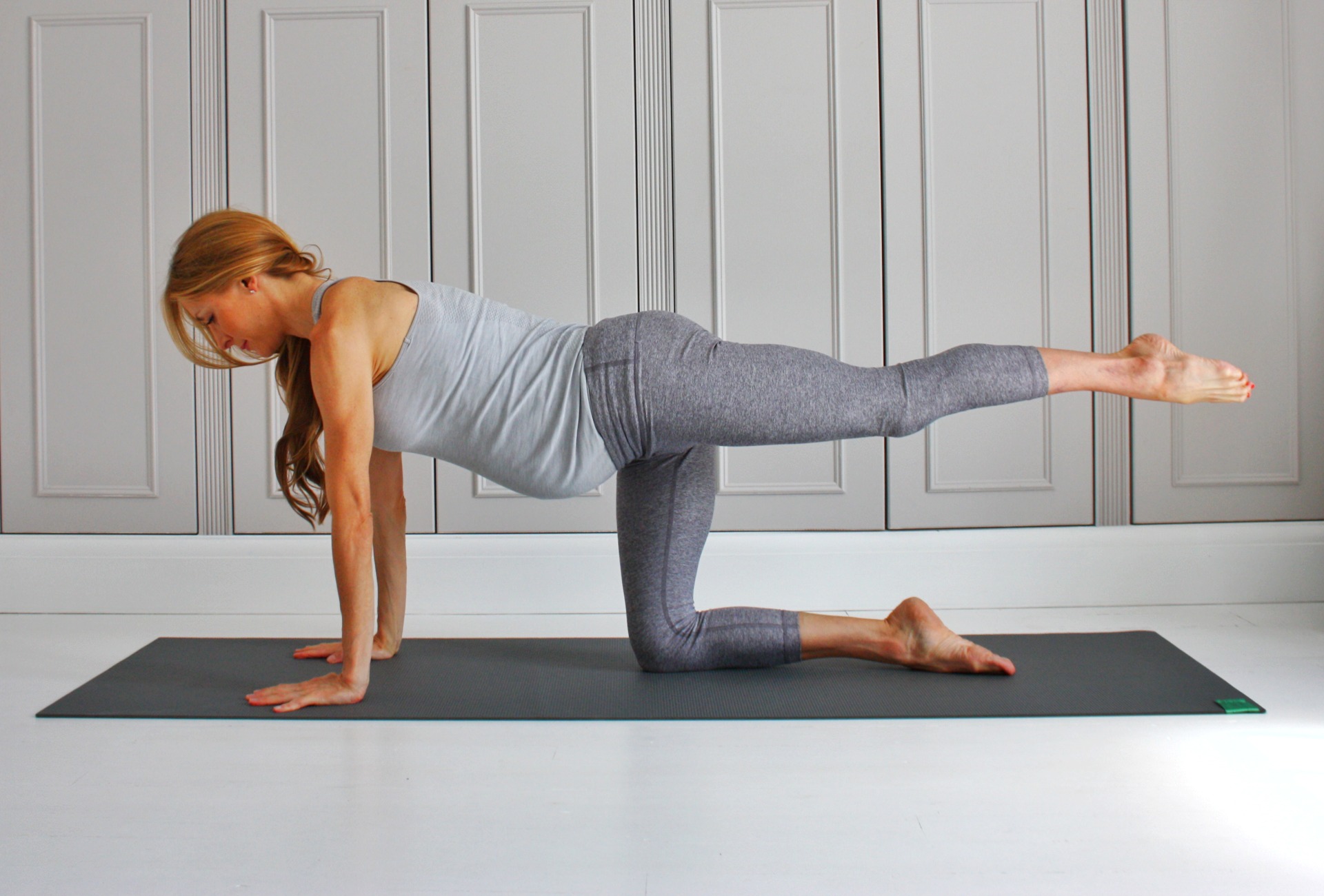
Morning sickness
For many, it is not just sickness in the morning, it can be all night and all day sickness! Sometimes it can be worse in the morning, but many people suffer from horrible nausea all day. I frequently woke during the night feeling sick!!
What causes morning sickness?
There is much speculation as to what actually causes morning sickness (see further on below under common ailments), but one of which is hormones!! It is thought that nausea and vomiting in pregnancy might be due to the effects of human chorionic gonadotropin (HCG), which is the hormone your body produces once you become pregnant. On the plus side, medical practitioners consider morning sickness to be a positive thing as it means that your placenta is developing well and you are less likely to suffer from miscarriage.
Morning sickness can also be worse if your blood pressure is low, if your blood sugars are low or you have an empty stomach. Sometimes, even though you don’t feel like it, some gentle exercise can often make you feel better and doing a class definitively use to help take my mind of the sickness.

What can help with morning sickness?
I have been teaching pregnant women for 13 years now and having suffered from severe nausea for the first 4 months of my pregnancy, here are some tips that have helped me or my clients.
- The Beige Diet – The first thing to say is do not beat yourself up if your usually very healthy diet goes out the window and suddenly your rainbow coloured plateful of food suddenly is beige! Yes the beige diet is what your body craves in the first trimester. Listen to your body, it craves certain foods for a reason. Often it cries out for salty foods, or sweet, or both! So here are foods that can help: White toast or crumpets with marmite or jam, rich tea biscuits, baby rusks or baby biscuits, ready salted or salt and vinegar crisps, melon, bananas, ice lollies.
- Avoid strong food smells.
- Get plenty of rest (tiredness can make nausea worse).
- Eat something plain, such as toast or a plain biscuit, before you get out of bed can help.
- Eat small, frequent meals of plain foods that are high in carbohydrate and low in fat (such as bread, rice, crackers and pasta).
- If the smell of food makes you feel sick eat cold foods.
- Drink plenty of fluids, such as water (sipping fluids little and often may help prevent vomiting). I developed a liking for fizzy water! There is something about the gas that eases the nausea. I would sometimes crazy sparkling water with lots of fresh lime juice.
- Eat foods or drinks containing ginger. There’s some evidence ginger may help reduce nausea and vomiting. Unfortunately it did not work for me.
- Acupressure wrist bands – there’s some evidence that putting pressure on your wrist, using a special band, may help relieve the symptoms. Be warned though that if your friends see you wearing these wrist bands they will suspect you are pregnant!
- Having someone to prepare your meals and bring you your snacks can be really helpful.
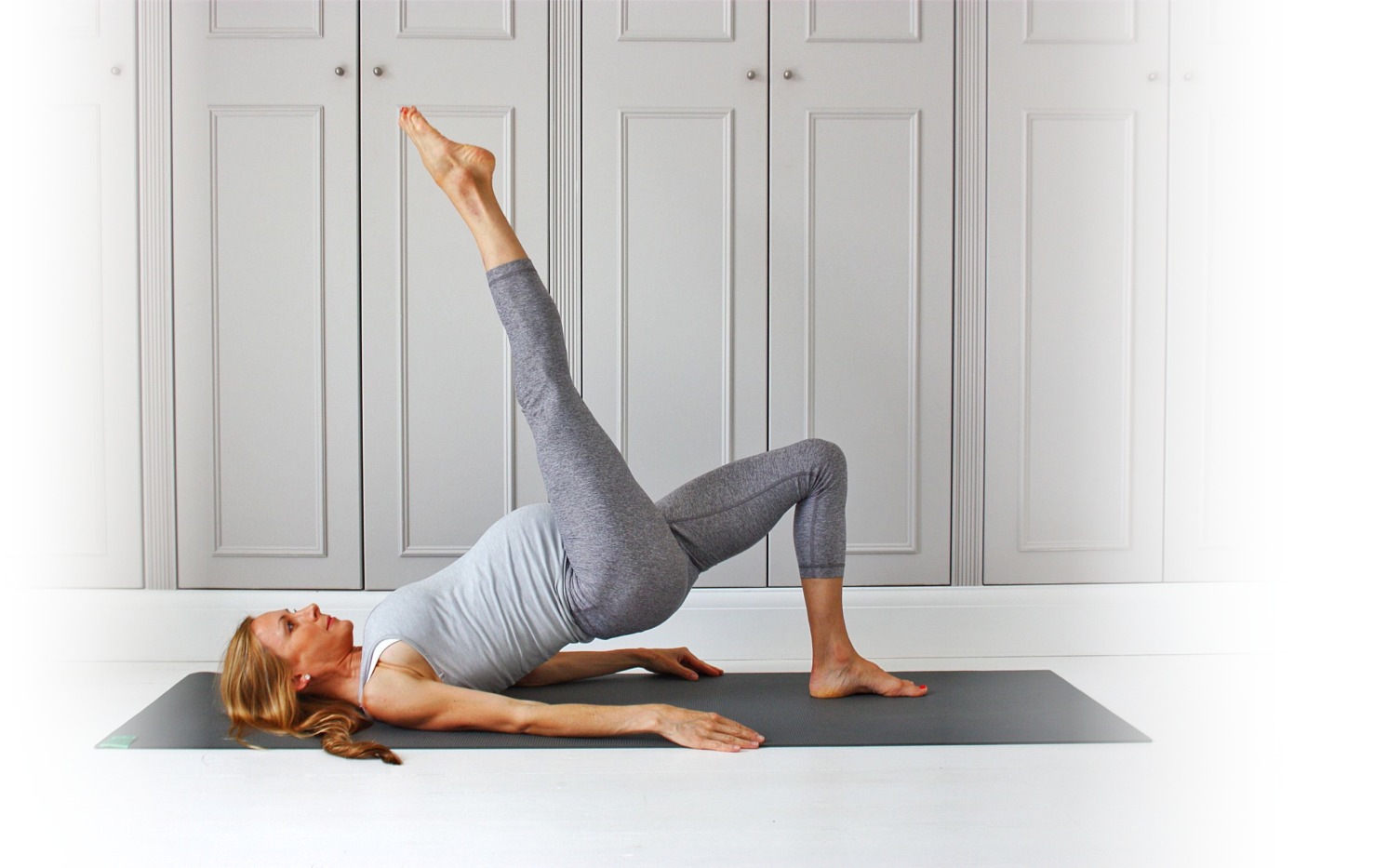
Healthier food swaps
If your sickness is bad, you just need to eat what your body will tolerate. Sometimes, your body may not be adverse to picking a healtier version, so here are some healtier food swaps to what you might be craving:
| Jam | Fruit Conserve |
| White bread | Wholemeal or seeded bread |
| Crisps | Vegetable or lentil crisps |
| Regular biscuits | Organix baby biscuits |
| Ginger nuts | Nairns oat ginger biscuits |
| Crisps | Lentil crisps, pop chips, baked (not fried) chips, pop corn |
| Ice cream | Frozen fruit, frozen yoghurt |
| Ice lollies | Made from fruit juice or smoothies, frozen fruit (sweeter fruits or softer due to the sugar content, such as bananas, cherries, blueberries, mango) |
| Chips | Sweet potato wedges or chips |
| Sweets | Frozen grapes, dried mango or dried or freeze dried fruit. |
| Fizzy drinks | Sparkling water with a splash of juice (I craved fresh lime in my fizzy water) |
Exercising in your first trimester
Sadly, it is estimated that 1 in 8 pregnancies end in miscarriage. The majority are not caused by anything the mother has done. Most miscarriages are caused by abnormal chromosomes in the baby. Chromosomes are genetic “building blocks” that guide the development of a baby.
I always think it is wise to not start something new when you find out you are pregnant, because should anything happen, it is very common for a woman to look to blame herself and have a question in her mind as to whether it was something that she did.
The guidelines are that you can continue doing what you did before, within reason. So, if you have had a yoga and Pilates practice before you got pregnant, you can continue with your practice. It is suggested not to start anything new until your pregnancy is established (i.e. Past 12 weeks). LISTEN TO YOUR BODY. When you are pregnant, you become so in tune with your body so do pay attention to it. Don’t exercise until you drop. Moderation is the key. The right type of exercise is actually very good for you and your baby.

Exercising during the rest of your pregnancy
Moderate exercise during pregnancy is recommended by the NHS. There are so many benefits to you and your baby when exercising during pregnancy. I am a huge fan or both Pilates and yoga during pregnancy as these two disciplines contain a vast toolbox of practices and exercises that are so helpful to the pregnant body. There is so much research on the benefits of exercise during pregnancy for you both. In addition, exercise can help to prevent some pregnancy complications such as pre-eclampsia or gestational diabetes.
You can exercise throughout your pregnancy up until your baby is born if you wish too! I usually find that most women find they have the most energy in their second trimester and up to the middle of their third trimester. Each day you will feel different, so you just need to tune into your body and work at a level that suits you that day. You can totally continue Pilates and yoga up until your due date, it’s just whether you feel up to it. Many of my clients come to my classes until their due date as they find the classes help increase their sense of wellbeing, but it’s totally individual.
Here are just some of the benefits of exercising during your pregnancy:
- Maintenance of fitness levels
- Increased body awareness & improved posture
- Prevention of lower and upper back pain
- Weight control
- Faster post-natal recovery
- Reported easier pregnancy & delivery
- Increased psychological wellbeing, self-image & confidence
- Increased venous return & circulation
- Reduced water retention and oedema
- Aids relaxation, improves sleep and increased energy levels
- Helps strengthen the areas needed for motherhood
- Helps to strengthen and bring awareness to the pelvic floor muscles
- Proven benefits to your baby
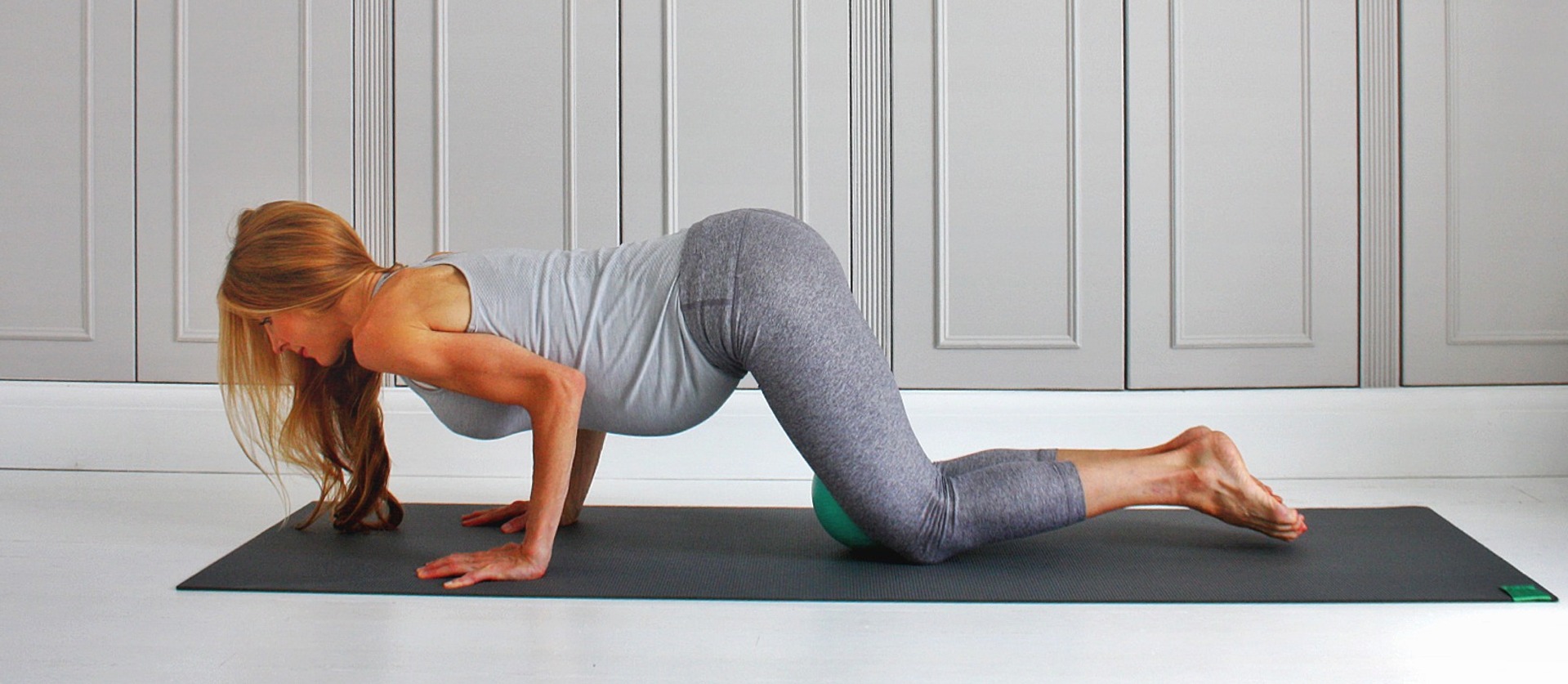
Common Ailments in Pregnancy
When you are pregnant your body goes through HUGE changes. It is just incredible what a woman’s body does to grow a baby. As a result of this gigantic task, it is totally normal to feel a lot more out of breath than you would normally would and extremely tired. It is mainly due to the huge physiological changes in the body that are occurring to grow your baby and sustain pregnancy.
Here are some common ailments that you may suffer during pregnancy:
Morning sickness and nausea
Normally morning sickness, if you get it, kicks in around 6 weeks and can occur at any time of the day or night. If you are fortunate, it usually goes away in the second trimester (at some point!). Here is a list of different factors that are said to trigger nausea and sickness:
- An empty stomach causing hypoglycaemia
- Surges in hormones and imbalances
- Normal pregnancy related changes to the digestive system, slowing the digestive system down and causing constipation
- Oily foods
- Lack of exercise
Generally, nausea can be eased by gentle movements and breathing, despite being the last thing you want to do. Strangely I remember feeling so sick and worrying how I was going to teach a class, but I started to feel better as I started moving and teaching.
Constipation
Constipation is very common in pregnancy mainly due to the pregnancy hormones causing decreased bowel activity. This can then contribute to other pregnancy symptoms such as indigestion and nausea.
Movement really helps constipation, as well as increasing your intake of fibre via lots of fruits and vegetables.
Backache and sciatica
Back ache is very common in pregnancy for lots of reasons. Some reasons include: the weight of the baby placing stress on the lower back muscles, constipation, poor posture and standing or sitting for long periods of time.
Both Pilates and yoga can help with postural problems and relieving aches and pains in your back.
Sciatica is extremely painful, and it’s often felt as a nerve pain that radiates from the glute/buttock down the leg. One cause can simply be that the baby is placing pressure on the sciatic nerve. Sometimes the cause is tight muscles. I only got sciatic in my third trimester a few weeks before my baby was born as changes in my pelvis started to occur in preparation for birth. There are some great yoga and Pilates exercises that can help with sciatica.
High and low blood pressure
It’s normal for a woman’s blood pressure to change during pregnancy. If you feel light headed when exercising, avoid lifting your arms up higher than your head and get up and down slowly to avoid postural hypotension. High blood pressure is an issue in pregnancy and will be monitored regularly as it is one of the symptoms of pre-eclampsia, which is very serious.
Research states that the greatest contributors to high blood pressure are stress, poor nutrition and lack of exercise.
Carpal Tunnel Syndrome
This condition affects up to 50% of all pregnant women during pregnancy. Compression of the median nerve in the wrist causes pain and numbness. It is thought that carpal tunnel syndrome (CTS) is caused by the extra fluid retention that often occurs during pregnancy, placing extra pressure on the carpal tunnel. If you are suffering from CTS, when weight bearing on your hands, use closed fists and tell your teacher as they may be able to show you some wrist exercises to help.
Breathlessness
It is common to feel breathlessness during pregnancy. At the start it is common due to the huge changes occurring in the body that affect a woman’s circulatory system. In the third trimester it is because the baby starts to compress the lungs as the baby pushes up underneath the diaphragm.
Postures that increase the space in the torso will help.
Fatigue
It is normal to need more sleep during pregnancy as you are growing another human being! Many women find that they are extremely tired in the first trimester as that is when the greatest hormonal changes take place and by the end of the first timester, all your baby’s body parts are formed – that is an incredible accomplishment!! In addition, the increased amount of the hormone progesterone is known to cause women to become sleepy as it is a natural depressant for the nervous system.
When it comes to exercise, listen to your body. Often movement can make you feel less tired, unless it is too strenuous. Often it is the second trimester that a woman finds they have the most energy. This was certainly true for me (albeit when the morning sickness stopped).
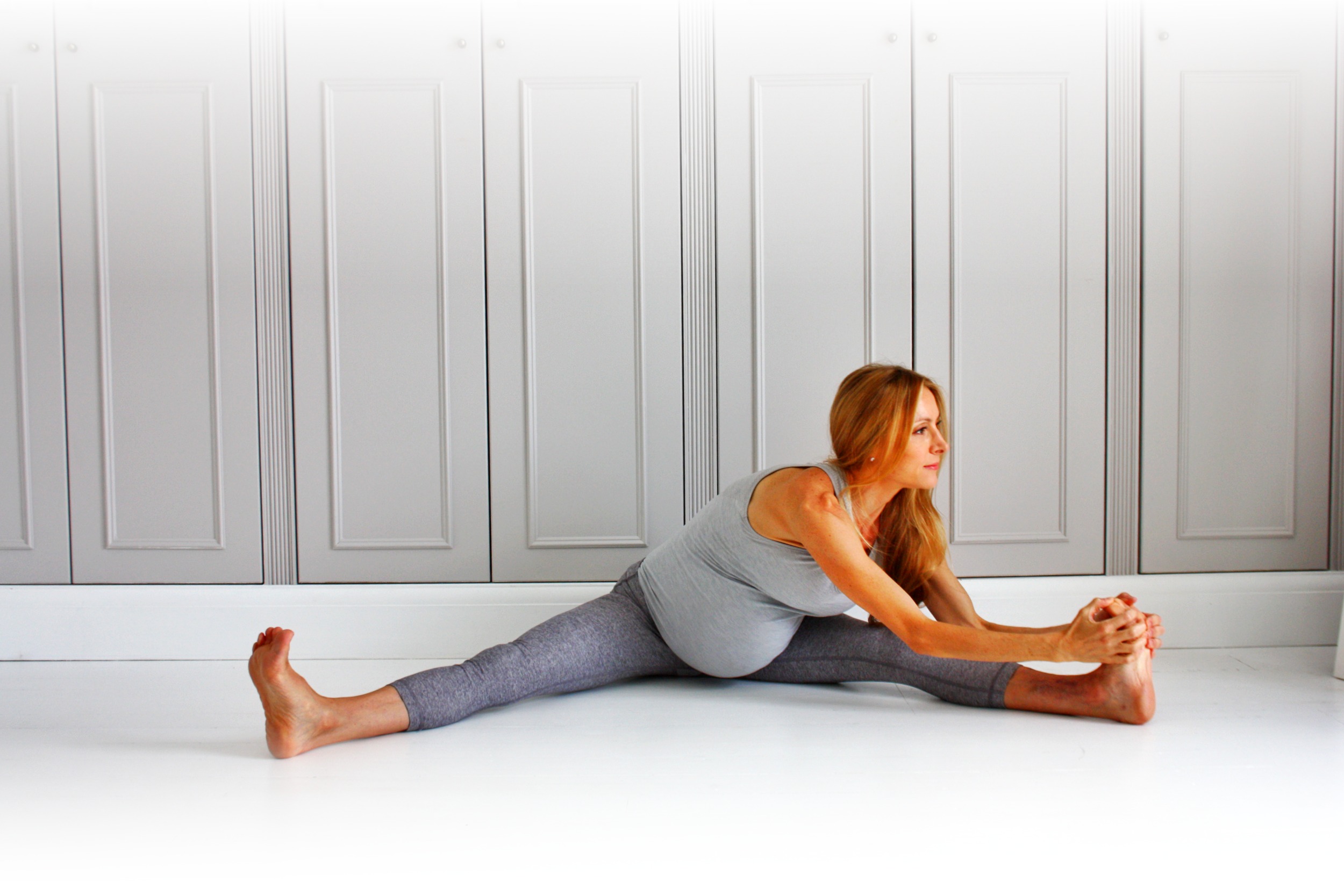
Pregnancy classes
Do you want to feel strong, empowered and healthy during your pregnancy?
If you would like to join a group class, my Pre & Postnatal Pilates class is on a Saturday morning at 9.30am Christ Church Chislehurst or on Zoom. For more details please see here.
In addition, I have pre-recorded videos and exercises specifically for pregnancy that you can do at any time of the day by joining my online Membership here.




